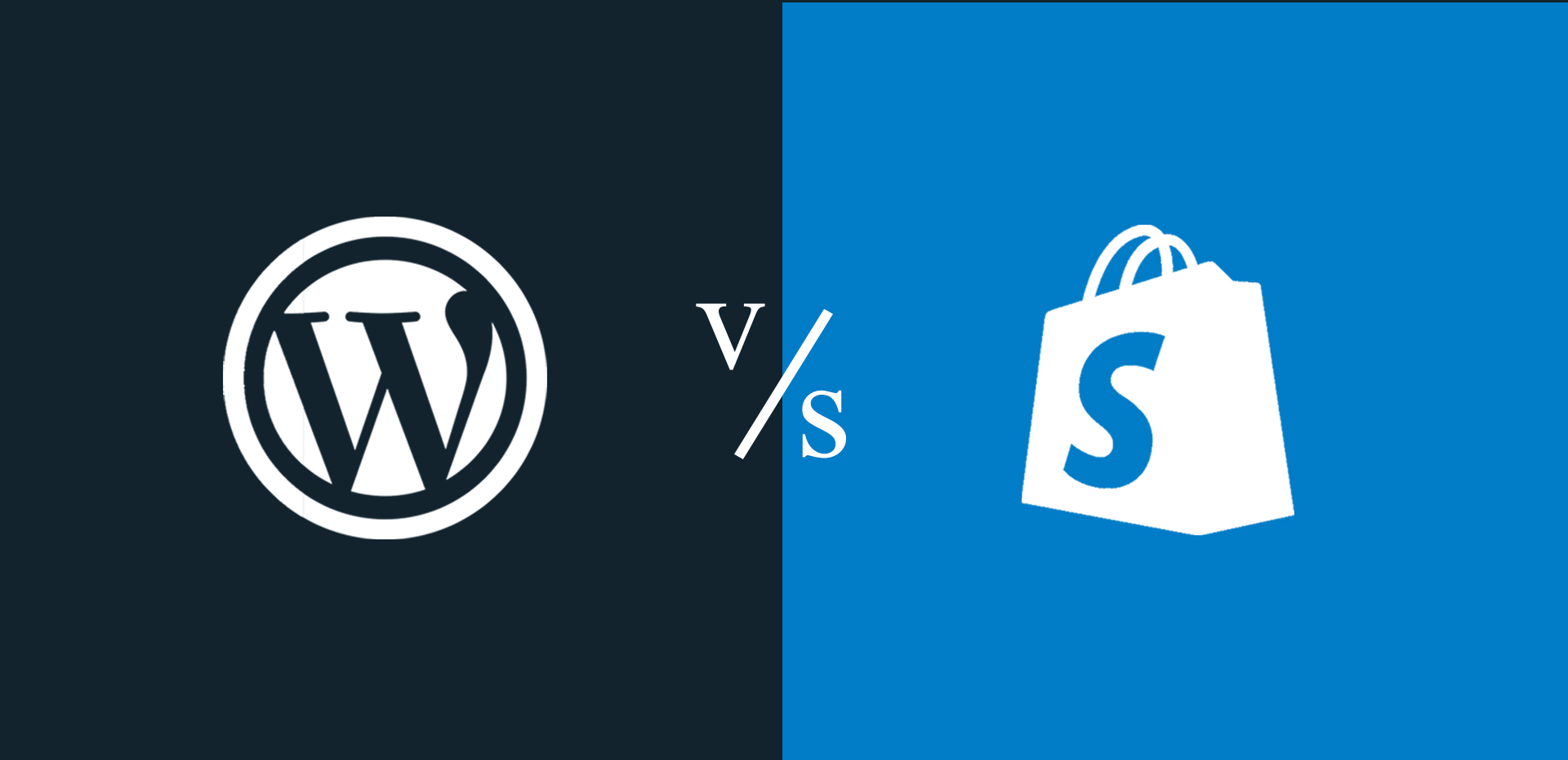
Shopify vs WordPress: Choosing the Best Platform for Your Online Store
Introduction:
In the rapidly expanding world of e-commerce, having a reliable and user-friendly platform for your online store is crucial. Two popular options that often come to mind are Shopify and WordPress. Both platforms offer a range of features and customization options, but which one is truly the best? In this article, we will compare Shopify and WordPress in various aspects to help you make an informed decision.
Ease of Use:
Shopify: One of the key advantages of Shopify is its simplicity and ease of use. It is a hosted platform, meaning you don’t have to worry about managing servers or technical aspects. Setting up your store is straightforward, and Shopify provides an intuitive interface with drag-and-drop functionality, making it accessible for users with limited technical expertise. The platform offers a step-by-step setup wizard that guides you through the process of creating your store, adding products, and configuring payment options. Shopify also provides 24/7 customer support to assist you with any queries or issues that may arise.
WordPress: WordPress is known for its flexibility and user-friendliness. While the initial setup may require a bit more technical knowledge, once installed, WordPress offers an easy-to-navigate admin panel. However, managing an e-commerce store with WordPress involves more plugins and extensions to add functionality, which can be overwhelming for beginners. However, there are numerous resources available, including tutorials, forums, and plugins that can help streamline the process. Additionally, WordPress has a vast community of users who can provide assistance and guidance if needed.
Verdict: If you prioritize simplicity and ease of use, Shopify takes the lead. However, if you are comfortable with technical aspects and desire more control, WordPress could be a viable option.
Customization and Design:
Shopify: Shopify provides a wide array of professionally designed themes and templates, both free and paid. These themes are highly customizable, allowing you to modify layouts, colors, and fonts to match your brand. Additionally, Shopify’s built-in theme editor allows you to make changes without any coding knowledge. The platform also offers a dedicated app store, where you can find extensions and plugins to enhance the functionality of your store. From marketing tools to advanced inventory management, Shopify provides a comprehensive range of options for customization.
WordPress: WordPress offers an enormous range of themes and templates, including those specifically designed for e-commerce. With WordPress, you have more control over customization, thanks to its extensive library of plugins and the ability to directly edit code. This allows you to create a unique and tailored online store. Plugins like WooCommerce, Easy Digital Downloads, and WP eCommerce are popular choices for adding e-commerce functionality to WordPress. These plugins provide extensive customization options, including the ability to modify product pages, manage inventory, and integrate with various payment gateways.
Verdict: If you prioritize simplicity and ready-made designs, Shopify is the winner. However, if you have specific design requirements and want complete control over customization, WordPress offers more flexibility.
E-commerce Features:
Shopify: Being a dedicated e-commerce platform, Shopify excels in providing comprehensive e-commerce features out of the box. It offers built-in features such as inventory management, payment gateways, shipping options, and order management. Additionally, Shopify has an extensive app store, enabling you to add more functionality as your business grows. The platform seamlessly integrates with popular payment gateways like PayPal, Stripe, and Authorize.net, ensuring a smooth checkout experience for your customers. It also provides features like abandoned cart recovery, discount codes, and customer reviews to optimize your sales.
WordPress: While WordPress began as a blogging platform, it has evolved into a robust content management system that can support e-commerce functionality with the help of plugins like WooCommerce. These plugins provide various e-commerce features, but they might require additional setup and configuration. WooCommerce, for example, offers a wide range of extensions for payment gateways, shipping options, and inventory management. With WordPress, you have the freedom to choose the specific features and plugins that suit your business needs.
Verdict: If you are primarily focused on e-commerce and want a hassle-free experience, Shopify is the recommended choice. However, if you already have a WordPress website and want to add e-commerce functionality while maintaining a unified platform, WordPress with plugins like WooCommerce can be a suitable option.
Scalability:
Shopify: Shopify is designed to handle businesses of all sizes. It offers unlimited bandwidth, ensuring your website can handle high traffic volumes without performance issues. Additionally, Shopify takes care of security, backups, and server maintenance, allowing you to focus on growing your business. The platform offers various plans to accommodate different business needs, from startups to enterprise-level stores. As your business scales, you can seamlessly upgrade your plan to access additional features and resources.
WordPress: WordPress can also scale effectively, but it requires additional effort to ensure optimal performance. As your store grows, you may need to invest in quality hosting, caching mechanisms, and optimization techniques to maintain speed and stability. There are managed WordPress hosting providers that specialize in e-commerce and offer scalable infrastructure tailored for high-performance online stores. With the right hosting environment and optimization measures in place, WordPress can handle significant traffic and transactions.
Verdict: If you are looking for a hassle-free scalable solution, Shopify is the winner. However, if you have technical expertise or are willing to invest time and resources into optimization, WordPress can also scale effectively.
Conclusion:
Choosing the best platform for your online store ultimately depends on your specific requirements, technical expertise, and long-term goals. Shopify offers a user-friendly experience, with robust e-commerce features and scalability, making it an excellent choice for those who want a hassle-free solution. On the other hand, WordPress provides more customization options and flexibility, allowing you to tailor your online store to meet your unique needs. By weighing the pros and cons of each platform and considering your business objectives, you can make an informed decision and set up a successful online store.

Lorem Ipsum is simply dummy text of the printing and typesetting industry. Lorem Ipsum has been the industry's standard dummy text ever since the 1500s, when an unknown printer took a galley of type and scrambled it to make a type specimen book.